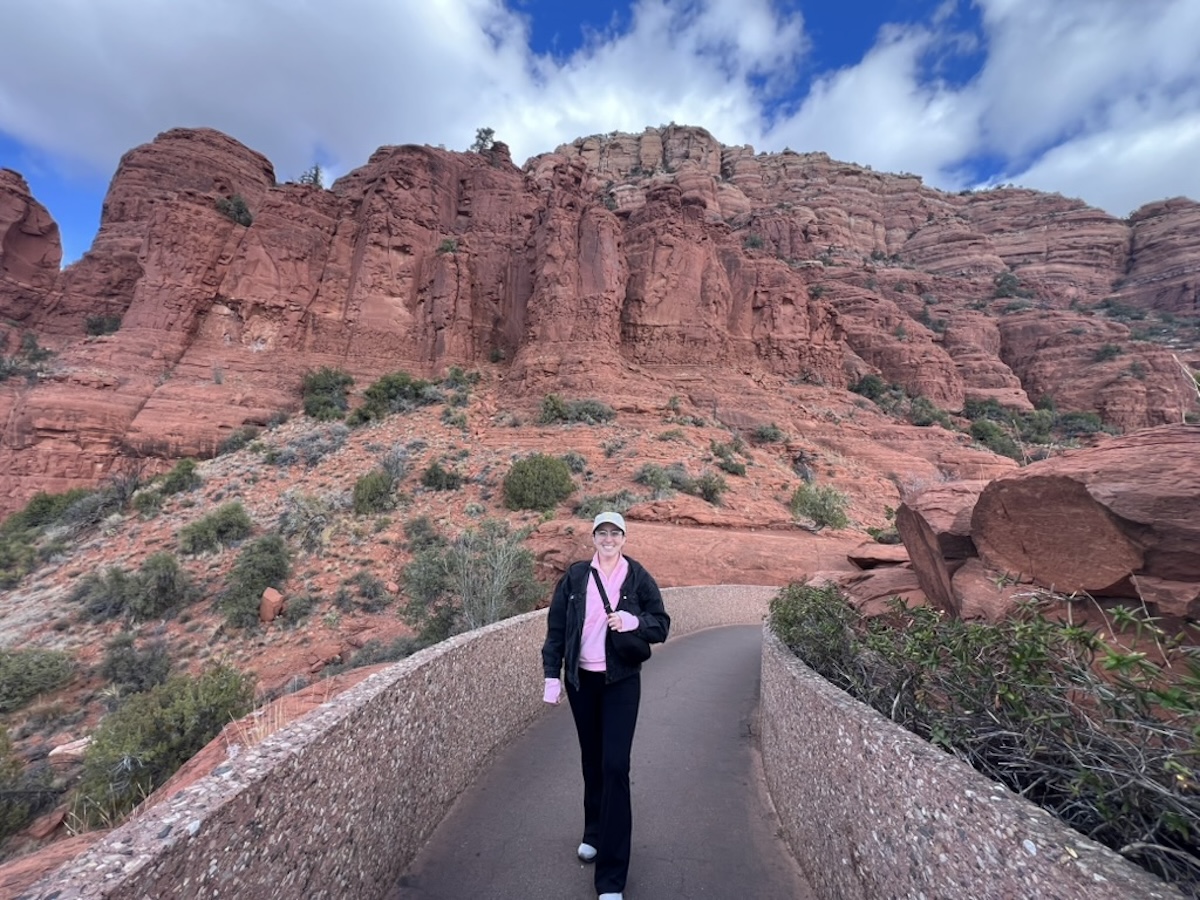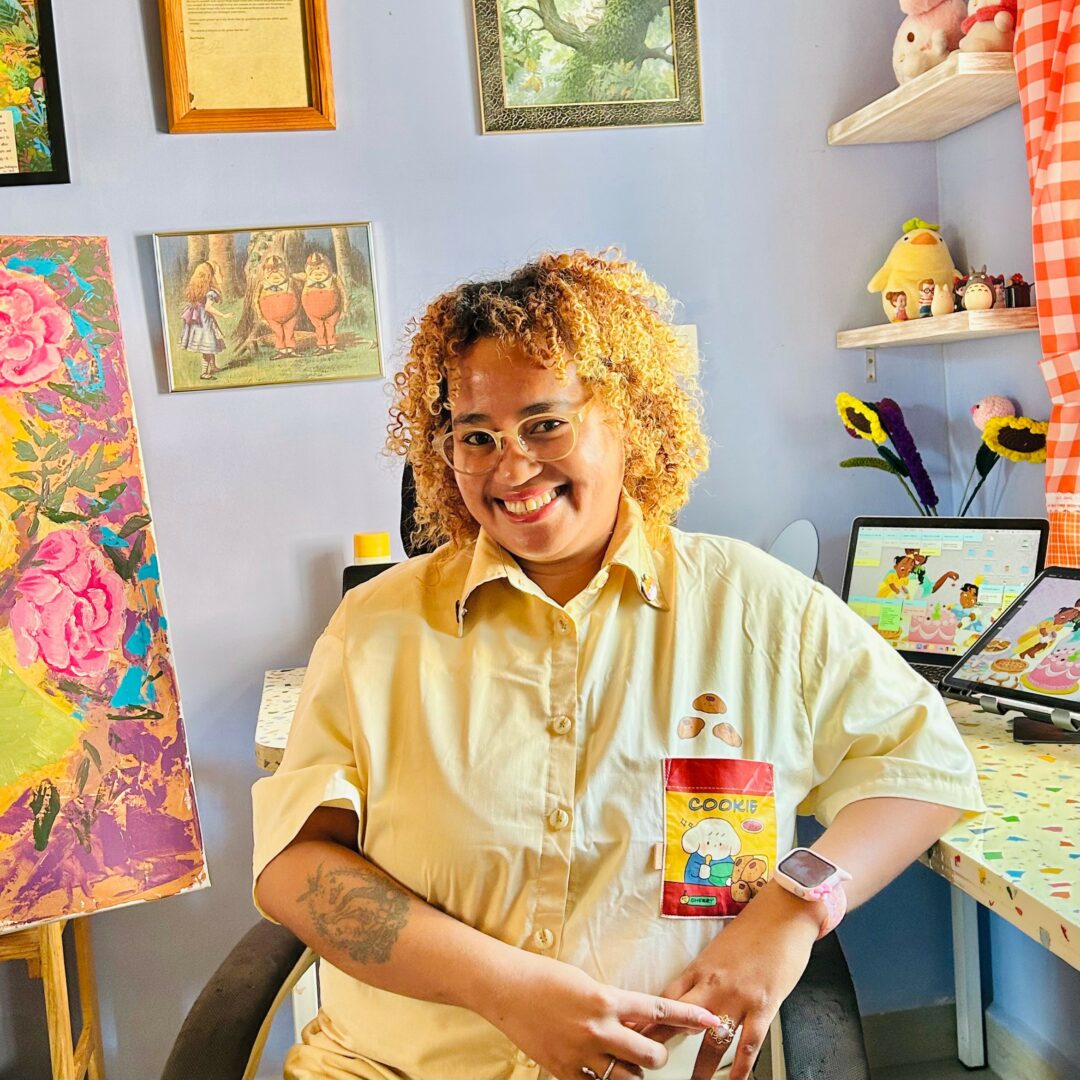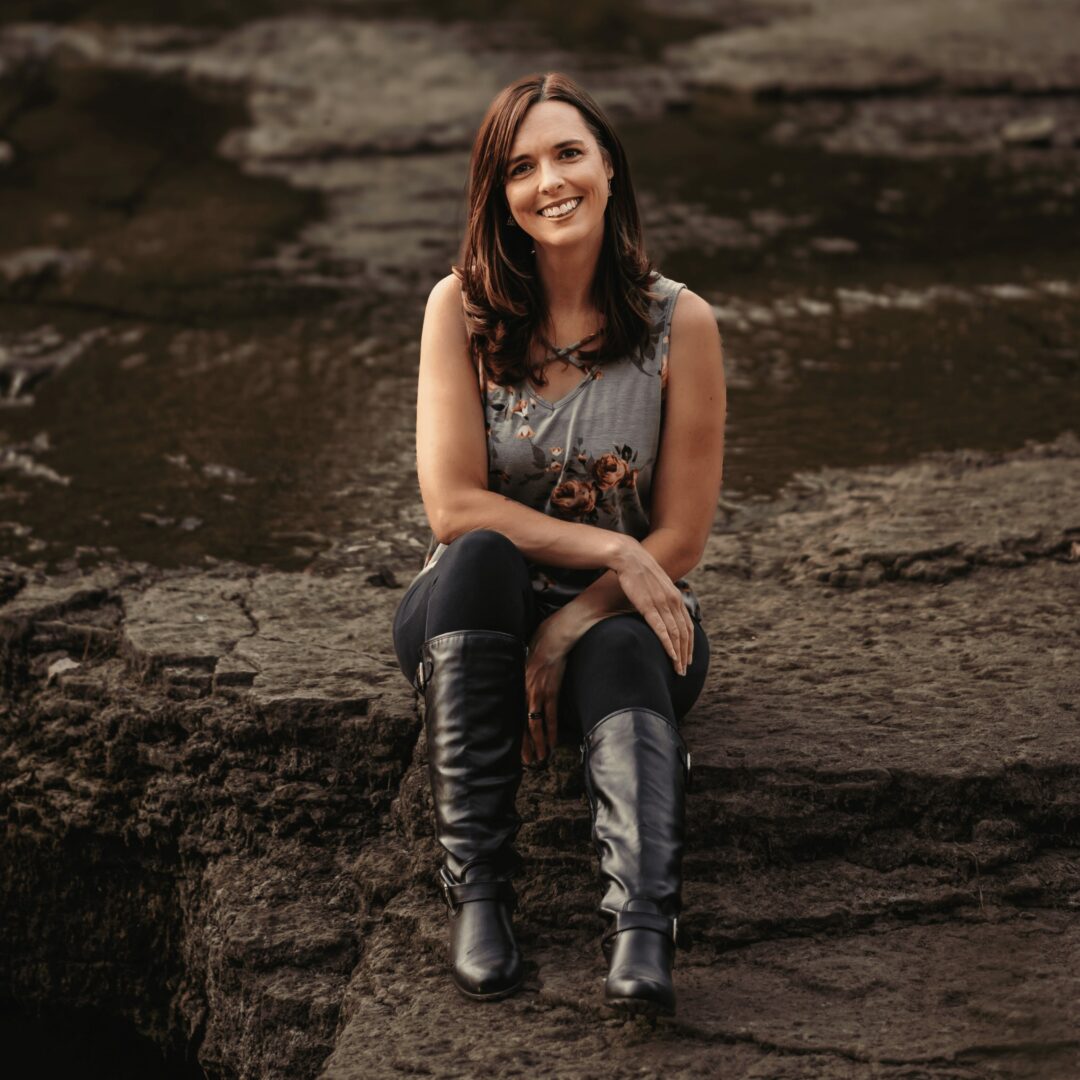We were lucky to catch up with Jill Sayre recently and have shared our conversation below.
Jill, appreciate you making time for us and sharing your wisdom with the community. So many of us go through similar pain points throughout our journeys and so hearing about how others overcame obstacles can be helpful. One of those struggles is keeping creativity alive despite all the stresses, challenges and problems we might be dealing with. How do you keep your creativity alive?
My parents raised me not to think about creativity as an outlying trait as much of the world sees it but as a part of many things human beings do. My mother was an interior designer, helping others make a house into a home by using creativity to not only choose paint colors and fabrics but to fit a budget, make a room unique, and express the owner’s individuality. My father was an engineer who oversaw the building of satellites launched into space. He’d often share the creative ways he’d make innovative antennas or landing gear out of the meager materials given to him within NASA’s financial allocation. I remember a time my parents’ creative worlds came together when we inherited an old iron bed. She had sanded it carefully to remove the rust and spray-painted it to a shiny white, but it was missing the brass balls that usually adorned each corner of the bedposts. So, my father came home with four, gold-plated ball bearings from an unlaunchable satellite, drilled holes in each one, and they became the finials.
As an only child, I spent a lot of time alone in my room drawing, teaching myself how to play musical instruments like the flute and an electric keyboard, and I loved to draw and write stories. I don’t ever remember being bored because I had so many ideas dancing around in my head that I needed to get out. So, it’s not surprising that I got a B.A. in art at U.C.L.A. Although people would roll their eyes and ask me what I would do with an art degree, my parents supported it 100%, telling me it would be handy no matter my career path. This turned out to be true for I became an elementary school teacher and found myself loving to create fun and engaging lessons within the guidelines of the curriculum. Whenever I could, I’d integrate an opportunity for my students to be creative about solving problems or expressing themselves.
But while raising my own three children, which did have its fair share of creativity when it came to helping them come up with school projects or sewing their Halloween costumes, in the extreme busyness of daily life, I lost the joy of creating purely for myself. That pang was there, but I had neglected to make time for it. So, I started jotting down ideas for stories on slips of paper whenever I had a peaceful moment, usually just before bed. I always loved books that were based in reality but had a magical twist, so I began to write brief ideas of “what if.” What if the sandman was real? What if statues came to life one day? What if fairies controlled the growth of all plants in nature? Stuck on the fairy idea, I began doing small bits of research on the fairy craze in the 1920s, which led me to wonder about modern fairy beliefs, etc. And soon, those scraps of paper were anecdotes for the first book I wrote, “The Fairies of Turtle Creek.”
It’s easy to let other things take over your life and halt creativity, but I have learned to carve it out in small bits and pieces. Taking five minutes to write thoughts in a journal each day before sleeping, having a small sketchbook in your handbag, or even letting your imagination run a little wild as you fall asleep can be freeing. I’m convinced that making creativity a priority, even in a small way, will not only help fulfill that part of you but will help you more readily find creative solutions in other areas of your life.
Thanks, so before we move on maybe you can share a bit more about yourself?
I am a retired educator, but I still love to help others express their story. I helped dozens of people take their ideas, find the story arc, and get it written down. My new business, an editing and coaching service called “The Scribe Fairy” is designed to help those who always wanted to write a book and have a story in their head. I have been in several critique groups, allowing me to not only give feedback but to receive other perspectives on my own work. I believe the journey of writing should be shared. For me, it’s the comradery, insight, and expertise that comes from others that makes writing a worthwhile journey. Writing alone can be writing in a vacuum, and to me, stories that come from even a small amount of collaboration are much richer.
As for my own work, my first book, “The Fairies of Turtle Creek,” was written as a middle grade novel, filling in the gap between easy-reader middle grade stories and more advanced young adult books. I am delighted by the notes I’ve received from young readers who enjoy my story of a science-minded girl who discovers the importance of believing in magic. However, I was pleasantly surprised to find that nearly half of my readers are grandmothers. I have received letters and emails from women who have fairy gardens or who had grandmothers who taught them fairy lore. My second book is nearly completed, and I will be seeking a publisher soon. This is a young adult story inspired by the 19th-century play, “Cyrano de Bergerac” by Edmond Rostand with a touch of “Beauty and the Beast,” titled “Grotesque” with gargoyles that come to life. Both books are reality-based fantasies tied up in the premise of “what if?” I am also shopping a book I collaborated on with the talented writer, Helen Martin Ippolito, called “In the Wake of Broken Hearts,” which is women’s fiction based on Helen’s life story as an Italian-American, top fashion model in Chicago in the 1960s. This story will appeal to those who not only love women’s fiction but enjoy memoirs and historical fiction.
If you had to pick three qualities that are most important to develop, which three would you say matter most?
When it comes to my creativity, I made the shift from painting and drawing as a young person to painting with words when I was in my 40s. It’s important to always be open to learning new skills. I shifted to becoming a writer by attending writing conferences, online seminars (“Writer’s Digest University” has great ones), and book clubs to immerse myself in learning about “story.” I found a critique group, and that held me accountable for producing pages. They also helped me find the courage to share my writing with others, which can be scary at first. I know firsthand how starting down the road of becoming an author can be intimidating, but there are many amazing resources. Joining a writing organization like S.C.BW.I. (The Society of Children’s Book Writers and Illustrators) or R.W.A. (Romance Writers of America), or a group that supports the genre you want to write in, will not only offer numerous experiences that will grow your skills but will also have opportunities to meet others who share your passion. Writers are the nicest people, and writing can be lonely. It doesn’t have to be.
All the wisdom you’ve shared today is sincerely appreciated. Before we go, can you tell us about the main challenge you are currently facing?
My first book was published, and then it was on to my next idea. My three children were in college, and as we all know, the cost of tuition is great, so just as momentum grew for my new project, I needed to go back to work as an educator, delaying my goal of completing my second book for six years. However, I still worked on it when I could and continued with regular critique group meetings every three weeks, writing, editing, and revising up to ten pages at a time. I didn’t give up and learned to accept that my progress would just be slower. However, after retiring a year ago, I had the time to devote myself to my writing and the writing of others full-time without other major commitments. On a roll again, especially after attending an amazing writer’s retreat in Eureka Springs, Arkansas, for a week, I was halfway through final revisions on my second book… but then I fell on a walk and severely broke my right elbow, which is my dominant hand. The doctors tell me it will be a year before I am completely healed. It would be easy to feel defeated and give up, and I have certainly had my moments of doubt and frustration, but I have gone back to the mindset of doing a little every day, working at a slower pace. You see, I believe that the key is doing what you can, even if it’s jotting a note, listening to a book on Audible in the genre you’re writing, or attending an online seminar on the publishing industry in 2024. Small actions keep the creative fires smoldering until the day comes when you can fan the flames, and the passionate effort will burn hot again. Cultivate what you can; I have managed to submit my co-authored book project, slowly revise my other manuscript, and update my websites. I’ll be in full swing soon!
Contact Info:
- Website: https://www.jillksayre.com/
- Instagram: https://www.instagram.com/authorjillksayre/?hl=en
- Facebook: https://www.facebook.com/JillKSayre/
- Linkedin: https://www.linkedin.com/in/jill-k-sayre-36697b2aa/









